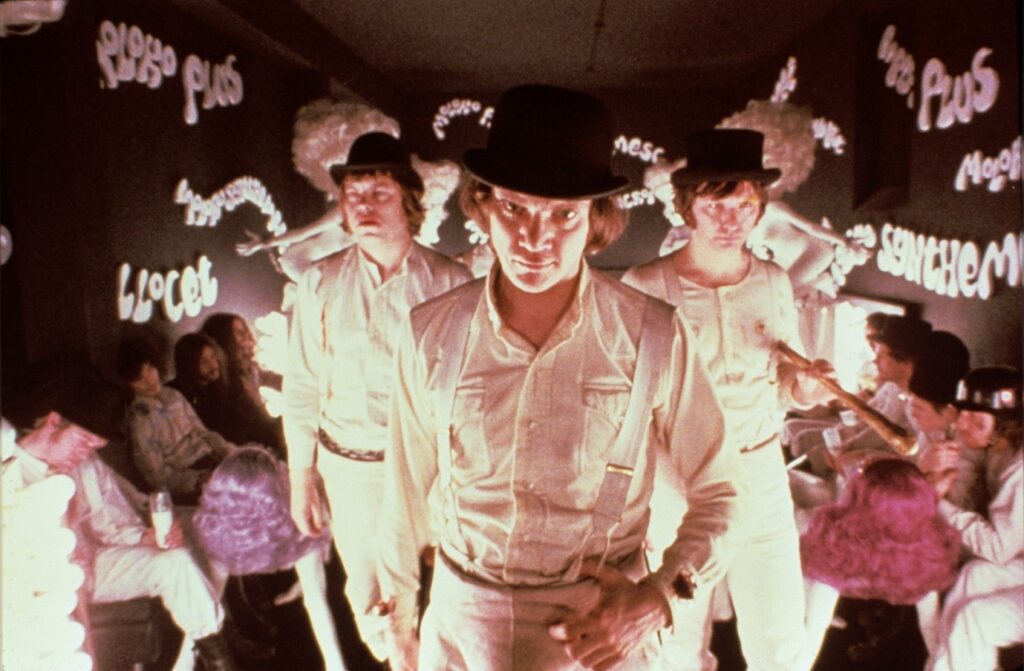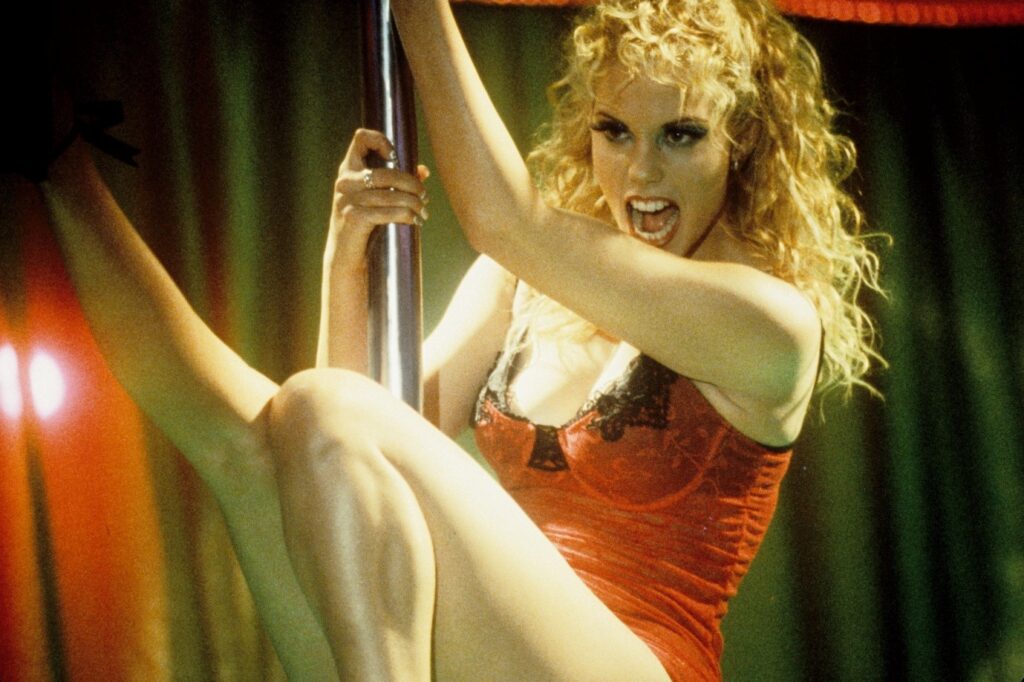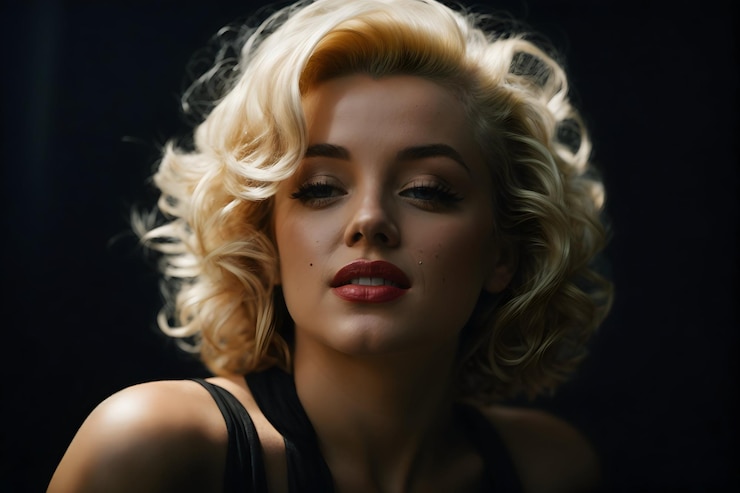Greetings, film enthusiasts and inquisitive minds! When it comes to Hollywood, one thing it excels at is igniting conversations and controversies. From scandalous romances to mind-bending plot twists, Tinseltown has gifted us with some of the most contentious movies in cinematic history. Fasten your seatbelts; we’re about to plunge into the depths of Hollywood’s most infamous films, where every frame is a conversation starter and every storyline is a source of debate. Get ready for a journey through the provocative and the polarizing as we explore the films that have left an indelible mark on the landscape of controversial cinema.
A Clockwork Orange (1971)

Let’s commence our cinematic journey with Stanley Kubrick’s mind-bending masterpiece, “A Clockwork Orange.” Plunging headfirst into the dark recesses of human nature, this film shocks with its portrayal of ultra-violence, unsettling social commentary, and the morally ambiguous anti-hero, Alex. The impact was profound, leaving audiences both stunned and polarized. Love it or hate it, “A Clockwork Orange” remains a jaw-dropping exploration of societal norms and individual morality, cementing its status as a cinematic tour de force that challenges, disturbs, and lingers in the minds of those brave enough to venture into Kubrick’s provocative vision.
The Passion of the Christ (2004)
Mel Gibson’s “The Passion of the Christ” stormed into theaters like a bolt of lightning, leaving an indelible mark. With its graphic portrayal of the crucifixion of Jesus Christ, the film sparked fervent discussions and heated debates about its treatment of religious themes and explicit violence. Whether viewed as a spiritual revelation or an intense cinematic ordeal, there’s no denying the profound impact of “The Passion of the Christ,” solidifying its place as one of Hollywood’s most controversial and talked-about films that dared to confront audiences with its unflinching depiction of a sacred narrative.
Natural Born Killers (1994)
Oliver Stone’s “Natural Born Killers” takes audiences on a wild ride, marked by frenetic editing, controversial themes, and the anarchic exploits of Mickey and Mallory, a modern-day Bonnie and Clyde. The film stirred up intense debates as critics and audiences grappled with its intentions – a savage critique of media’s impact on violence or a glorification of it. The blurred lines between satire and glorification left viewers questioning the film’s stance, contributing to its notoriety and solidifying its place as one of Hollywood’s most provocative and debated films, where the boundary between commentary and celebration remains a subject of ongoing discussion.
Showgirls (1995)Image Courtesy: www.imdb.com
Let’s commence our cinematic journey with Stanley Kubrick’s mind-bending masterpiece, “A Clockwork Orange.” Plunging headfirst into the dark recesses of human nature, this film shocks with its portrayal of ultra-violence, unsettling social commentary, and the morally ambiguous anti-hero, Alex. The impact was profound, leaving audiences both stunned and polarized. Love it or hate it, “A Clockwork Orange” remains a jaw-dropping exploration of societal norms and individual morality, cementing its status as a cinematic tour de force that challenges, disturbs, and lingers in the minds of those brave enough to venture into Kubrick’s provocative vision.
The Passion of the Christ (2004)
Mel Gibson’s “The Passion of the Christ” stormed into theaters like a bolt of lightning, leaving an indelible mark. With its graphic portrayal of the crucifixion of Jesus Christ, the film sparked fervent discussions and heated debates about its treatment of religious themes and explicit violence. Whether viewed as a spiritual revelation or an intense cinematic ordeal, there’s no denying the profound impact of “The Passion of the Christ,” solidifying its place as one of Hollywood’s most controversial and talked-about films that dared to confront audiences with its unflinching depiction of a sacred narrative.
Natural Born Killers (1994)
Oliver Stone’s “Natural Born Killers” takes audiences on a wild ride, marked by frenetic editing, controversial themes, and the anarchic exploits of Mickey and Mallory, a modern-day Bonnie and Clyde. The film stirred up intense debates as critics and audiences grappled with its intentions – a savage critique of media’s impact on violence or a glorification of it. The blurred lines between satire and glorification left viewers questioning the film’s stance, contributing to its notoriety and solidifying its place as one of Hollywood’s most provocative and debated films, where the boundary between commentary and celebration remains a subject of ongoing discussion.
Showgirls (1995)

Paul Verhoeven’s “Showgirls” defies the conventions of a typical Hollywood blockbuster with its racy and over-the-top narrative depicting a stripper’s ascent to stardom. The film left heads spinning and critics grappling with its audacious satire or perceived lack thereof, leading to divided opinions about its artistic merit. Regardless of one’s stance, “Showgirls” is undeniably unforgettable, cementing its place in cinematic history as a provocative and divisive work that challenges traditional norms, pushing the boundaries of what mainstream cinema can and should be.
The Exorcist (1973)
“The Exorcist” remains a classic that sent shivers down the spines of audiences, drawing them to theaters while also causing fainting spells, sleepless nights, and widespread controversy. The film’s intense and visceral horror, coupled with its exploration of religious themes, struck a nerve, solidifying its place as one of the most debated movies of its time. The groundbreaking special effects and Linda Blair’s iconic portrayal of Regan, the possessed young girl, elevated “The Exorcist” to a status where it is not just a horror film but a cultural phenomenon that continues to influence the genre and provoke discussions about the boundaries of cinematic terror.
Brokeback Mountain (2005)
“Brokeback Mountain” stands as a poignant controversy, addressing the theme of forbidden love with grace and subtlety. The film challenged societal norms and prejudices, sparking meaningful debates about LGBTQ+ representation in Hollywood. Directed by Ang Lee, the heart-wrenching tale of two cowboys navigating a complex relationship defied stereotypes and opened discussions about acceptance and love. “Brokeback Mountain” not only broke hearts with its powerful narrative but also pushed boundaries, leaving a lasting impact on cinema and contributing to the ongoing dialogue surrounding diverse and inclusive storytelling in the film industry.
The Interview (2014)
“The Interview,” a comedic take on a plot to assassinate North Korea’s leader, stirred a diplomatic showdown and triggered cyberattacks and threats. Hollywood found itself in the midst of a geopolitical crisis as the film’s controversial content sparked international tensions. The uproar around the movie highlighted the potent influence of cinema in shaping political narratives and showcased the extent to which a film’s content can have real-world repercussions, transcending its role as mere entertainment.
Fifty Shades of Grey (2015)
“Fifty Shades of Grey,” a steamy adaptation, garnered both fervent fans and staunch critics. The film sparked conversations about its portrayal of sensuality, BDSM, and consent, dividing audiences into those who praised its exploration of these themes and those who criticized it. Christian Grey’s Red Room became a focal point of discussions surrounding the boundaries of eroticism in mainstream cinema. The controversy surrounding “Fifty Shades of Grey” highlighted the challenges filmmakers face when navigating explicit content and the diverse perspectives that emerge in response to films that push societal norms.
Hollywood’s history is marked by films that embrace controversy, and this selection proves just that. Whether you find yourself enamored or repelled, these movies undeniably wield a profound influence on both the film industry and society. As you contemplate your next movie night, consider embarking on a cinematic rollercoaster with one of these thought-provoking films—be prepared for passionate debates and discussions to follow. The enduring legacy of these controversial movies is a testament to their ability to challenge norms, evoke emotions, and contribute to the ongoing dialogue around the power of cinema.









